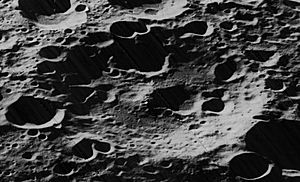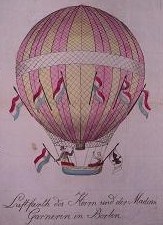Robert Emden facts for kids
Quick facts for kids
Robert Emden
|
|
|---|---|
| Born |
Jacob Robert Emden
4 March 1862 St. Gallen, Switzerland
|
| Died | 8 October 1940 (aged 78) Zurich, Switzerland
|
| Nationality | Swiss |
| Education | BS Physics 1885, PhD Physics 1887 |
| Alma mater | University of Strasbourg, German Empire (modern-day France) |
| Known for | Lane-Emden equation, Author of Gaskugeln: Anwendungen der mechanischen Wärmetheorie auf kosmologische und meteorologische probleme |
| Spouse(s) | Klara Emden (Schwarzschild) |
| Children | Charlotte Schein; Emma Müller; Antonia Flach; Karl Emden; Johanna Luise Berchtold-Emden |
| Scientific career | |
| Fields | Astrophysicist and Meteorologist |
| Institutions | Technical University of Munich, Bavarian Academy of Sciences and Humanities |
| Thesis | On the Vapour Pressure of Salt Solutions (1887) |
Jacob Robert Emden (born March 4, 1862 – died October 8, 1940) was a Swiss scientist. He was an astrophysicist, studying stars and space, and a meteorologist, studying weather and the atmosphere.
Emden is most famous for his book, Gaskugeln (which means Gas Spheres). This book, published in 1907, explained how huge balls of gas, like stars, behave. It showed a mathematical way to understand how they expand and shrink because of their own gravity. This idea led to a very important formula called the Lane-Emden equation.
Contents
Robert Emden's Life and Work
Emden was born in St. Gallen, Switzerland. He was the oldest of three children. He loved learning about math and physics. He studied these subjects in cities like Heidelberg and Berlin.
Education and Early Career
Emden earned his first degree in Physics in 1885. He then completed his PhD in Physics in 1887. He studied at the University of Strasbourg, which was in the German Empire at that time. His PhD work was about how salt solutions create vapor.
In 1889, he became a professor of physics at the Technical University of Munich. He later became an associate professor there, teaching physics and meteorology from 1907 to 1920.
Important Contributions
In 1907, Emden published his famous book, Gaskugeln. This book was a big step forward in understanding how gas spheres like stars work. He became a member of the Bavarian Academy of Sciences and Humanities in 1920.
In 1924, Emden became an honorary professor of astrophysics at the University of Munich. He also helped start a science journal called Zeitschrift fur Astrophysik in 1930. He worked as an editor for this journal for six years. In 1932, he became an Associate of the Royal Astronomical Society. He retired from teaching in 1934.
Emden's Impact on Science
Most of Emden's scientific work focused on how heat and energy (thermodynamics) apply to natural things. His papers mainly looked at the Earth's atmosphere (geophysics) and space (astrophysics).
Understanding Stars and Gases
Emden's book Gaskugeln showed a mathematical way to explain how gas spheres expand and compress. This was very important for understanding stars. His work, combined with ideas from another scientist named Subrahmanyan Chandrasekhar, led to the Emden–Chandrasekhar equation. This equation helped scientists model many different types of stars.
Emden's ideas also suggested that stars have a clear edge or boundary. This concept, along with the work of Jonathan Homer Lane, became known as the Lane-Emden equation. This equation is a special type of math problem that helps describe how the density of gas changes inside stars. Later, another scientist, Ralph H. Fowler, found new ways to solve these equations.
While Emden's models of stars used the idea of convection (heat moving through a fluid), later theories used radiative theory (heat moving as light).
Other Ideas
Robert Emden also had a theory about what causes sunspots. However, this idea was later found to be incorrect.
The Emden crater on the Moon is named in his honor.
Robert Emden's Personal Life
Robert Emden married Klara Schwarzschild. Klara was the sister of a famous German physicist and astronomer named Karl Schwarzschild. She was also the aunt of another well-known astrophysicist, Martin Schwarzschild. Robert and Klara had six children.
Emden loved hot air balloons. He even wrote a book in 1910 about how to navigate them. He always liked to connect physics to real-world problems. For example, in 1938, he wrote a letter to a science journal called Nature asking "Why do we have winter heating?"
Even after he retired in 1934, Robert Emden kept working on scientific projects. He passed away in Zürich on October 8, 1940. His last paper, which was about the temperature of lakes, was being printed when he died.
See also
 In Spanish: Robert Emden para niños
In Spanish: Robert Emden para niños



